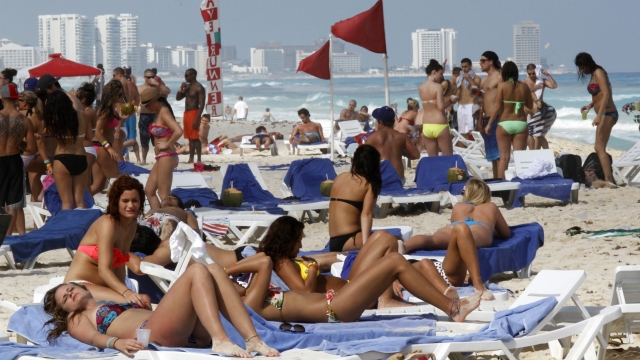Cassie Thomason's family owns a beach house in Rocky Point, or Puerto Penasco — a Mexican resort city on the Gulf of California.
"If we didn't feel safe it would be an absolute no go with our kids, of course, but we've never had an issue," Thomason said.
Rocky Point is in Sonora, where the State Department advises increased caution because of crime and kidnappings.
"We travel in the daytime, get to the house before night," Thomason said. "If we want to go out at night, we do bars and restaurants that are close to the house, not all clear cross town."
The fatal kidnapping of Americans in Matamoros has put a greater focus on Mexico's security.
The Texas Department of Public Safety is telling people to avoid the country altogether.
"Because of the increased violence and the fact that the Mexican drug cartels represent a significant threat to anyone who crosses into Mexico and just the sheer volatile nature of these criminal organizations and the increased violence — that's why we strongly urge anyone to avoid crossing into Mexico, especially at this time," said Lt. Christopher Olivarez, spokesperson for the Texas Department of Public Safety.
The State Department has varying levels of travel advisories for Mexico. Six states are in Do Not Travel zones.
In 17 states, travelers are advised to exercise increased caution. Favorite spring break spots including Cancun, Riviera Maya and Mexico City are in those areas.
Mexico's president is pushing back against the warnings, insisting his country is safer than the United States.
Reynaldo Herrera lives in Las Vegas and loves to visit San Jose del Cabo. He says taking precautions is a part of life anywhere.
"Use common sense. Try to be low key. Don't put yourself in places where there is going to be danger, just like you wouldn't do in parts of Los Angeles or Las Vegas," he said.
It's advice echoed by travel experts who say visitors should try to blend in and stay in places specifically designed for tourists.




